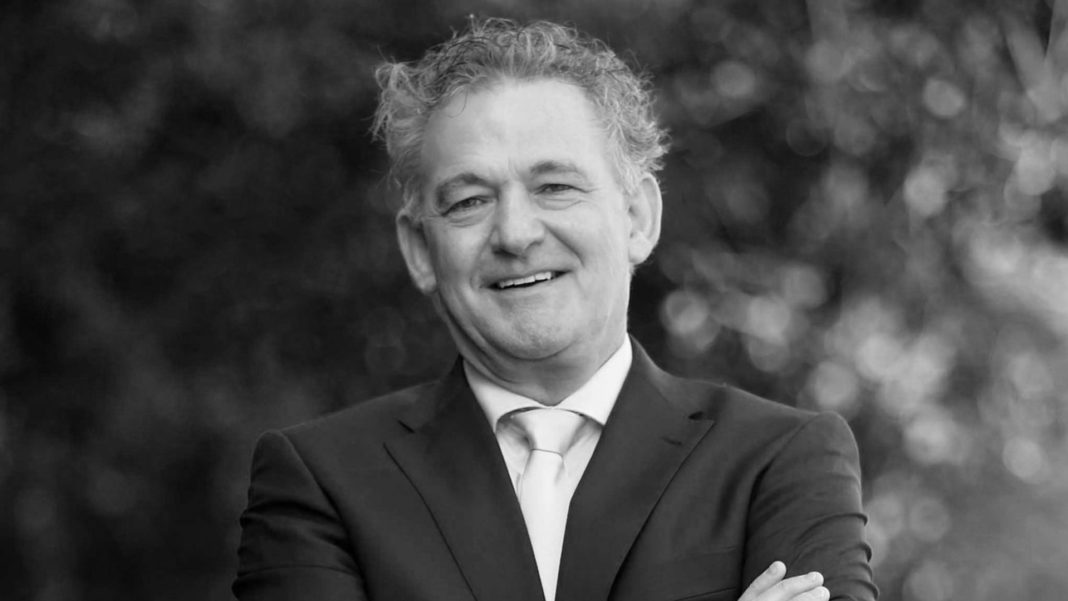Whether he meant to or not, presidential candidate Peter Casey should not be forgiven for the racial hate he stirred up in the bloodpot of human hearts, writes Donal O’Keeffe.
A retired public servant said to me: “D’you know something, I’d nearly be tempted to vote for yer man Peter Casey. He’s the only one telling the truth about the Travellers.” (He didn’t say 'Travellers'.)
Last week, presidential candidate Peter Casey denied the ethnicity of Travellers, and claimed Travellers do not play a full part in Irish society. He went to Tipperary to visit a housing development in Thurles into which Travelling people are refusing to move, because they say, the site does not have sufficient grazing for their horses. Casey linked their refusal to the homelessness crisis, despite Travellers being eight times more likely to be homeless than settled people.
It is astonishing how suddenly some become interested in homelessness when it can be weaponised against other equally vulnerable people. By the way, do you know who never does that? Brother Kevin. Sister Stan. Father Peter. The Simon Community. People with a proven record for caring for homeless people.
While in Thurles, Casey refused to meet with protesters. He later claimed he hadn’t known Travellers’ ethnicity had been recognised in Irish law, before pretending to suspend his campaign so he could play golf for the weekend.
“I did not know about the ethnic status. There are so many things going on.”
In the Irish Examiner, Elaine Loughlin made the point that Casey’s ignorance of Irish law disqualifies him to be president at least as much as his appalling comments and his temperament do; but I would argue that what Casey has done has repercussions far beyond the presidential campaign.
Just as Donald Trump has emboldened racists, misogynists and homophobes in the United States, Casey has enflamed anti-Traveller sentiments here, and given cover to those who, until now, were afraid to spew their bigotry.
“He’s the only one who’ll stand up to them.” “They get everything for nothing and fair f**ks to Casey for telling it like it is.” “He’s only saying what everyone else is afraid to say.”
All week long, I heard the same sentiment. Casey had become a hero to the sort of people who moan about political correctness, and who say things like “Things have gone too far the other way nowadays”, as though they long for a return to the good old days of institutionalised abuse, marital ban, marital rape, 'gay-bashing', sexual abuse, moving statues, Kerry Babies, the Eighth Amendment, John Charles McQuaid, the 1932 Eucharistic Congress, industrial schools, Magdalene Laundries, and Mother and Baby Homes.
Speaking on Saturday with Cormac Ó hEadhra on RTÉ Radio 1, Travellers’ rights activist Catherine Coffey O’Brien, pointed out that Casey is campaigning for the position of guardian of our Constitution, while making simultaneously comments that enable anti-Traveller sentiment.
“What Peter Casey did was he caused social division. He caused massive damage when it came to the relations between both communities.
“Peter Casey has brought gutter politics into the presidency.”
Travellers experience multiple barriers to the right to adequate education, healthcare and housing. Councils deliberately under-spend Traveller accommodation funding to see it cut the following year, while 12% of Travellers remain ghettoised in dangerously overcrowded sites. Less than 1% of Travellers go on to third level education.
Traveller children have an infant mortality rate four times that of the general population. Life expectancy for a male Traveller is 61.7 years, 15.1 years fewer than other Irishmen. Female Traveller life expectancy is 70.1, 11.5 years lower than for other Irishwomen. Suicide rates are six times that of the wider community, accounting for one in 11 Traveller deaths.
Funding to Traveller services were cut by up to 90% in the recession and, as 'Travelling with Austerity' highlights, the range of cuts to Traveller services were disproportionate to the type of austerity the rest of Irish society faced.
Last week, I found myself thinking again of one of the coincidences of the twentieth century, when one of America’s greatest poets, human rights advocates and political activists found himself renting from a racist landlord, the father of the man who would one day become the 45th President of the United States.
“I suppose Old Man Trump knows just how much racial hate he stirred up in the bloodpot of human hearts when he drawed that colour line here at his eighteen hundred family project,” wrote Woody Guthrie in 1951, when he realised that Fred Trump was actively discriminating against Black tenants. Trump was a profiteer who took Federal funding to build colour-blind housing projects and then denied Black people access.
Two years ago, Will Kaufman, a professor of American literature and culture at the University of Central Lancashire, discovered that in December 1950, Guthrie had signed a lease at Trump’s Beach Haven apartment complex in Brooklyn. Soon, Kaufman says, Guthrie was “lamenting the bigotry that pervaded his new, lily-white neighbourhood.”
Woody Guthrie died in 1967, and in the 1970s, the US Justice Department sued the Trumps, accusing them of discriminating against Black people. When a settlement was eventually reached, Trump Management noted the agreement did not constitute an admission of guilt.
“Woody was always championing those who didn’t have a voice, who didn’t have any money, who didn’t have any power,” Professor Kaufman says. “There’s no doubt that he would have had maximum contempt for Donald Trump, even without the issue of race.”
I think Woody Guthrie would have recognised Peter Casey for what he is: a Micro-Trump who will, minus his deposit, slink back to America with the phrase 'former presidential candidate' on his CV, a man who enabled bigotry in Ireland, just as Fred Trump and his son did in the US.
Good riddance to you, Peter Casey. It will take years, to paraphrase Woody Guthrie, to undo the racial hate you have stirred up in the bloodpot of Irish hearts.








